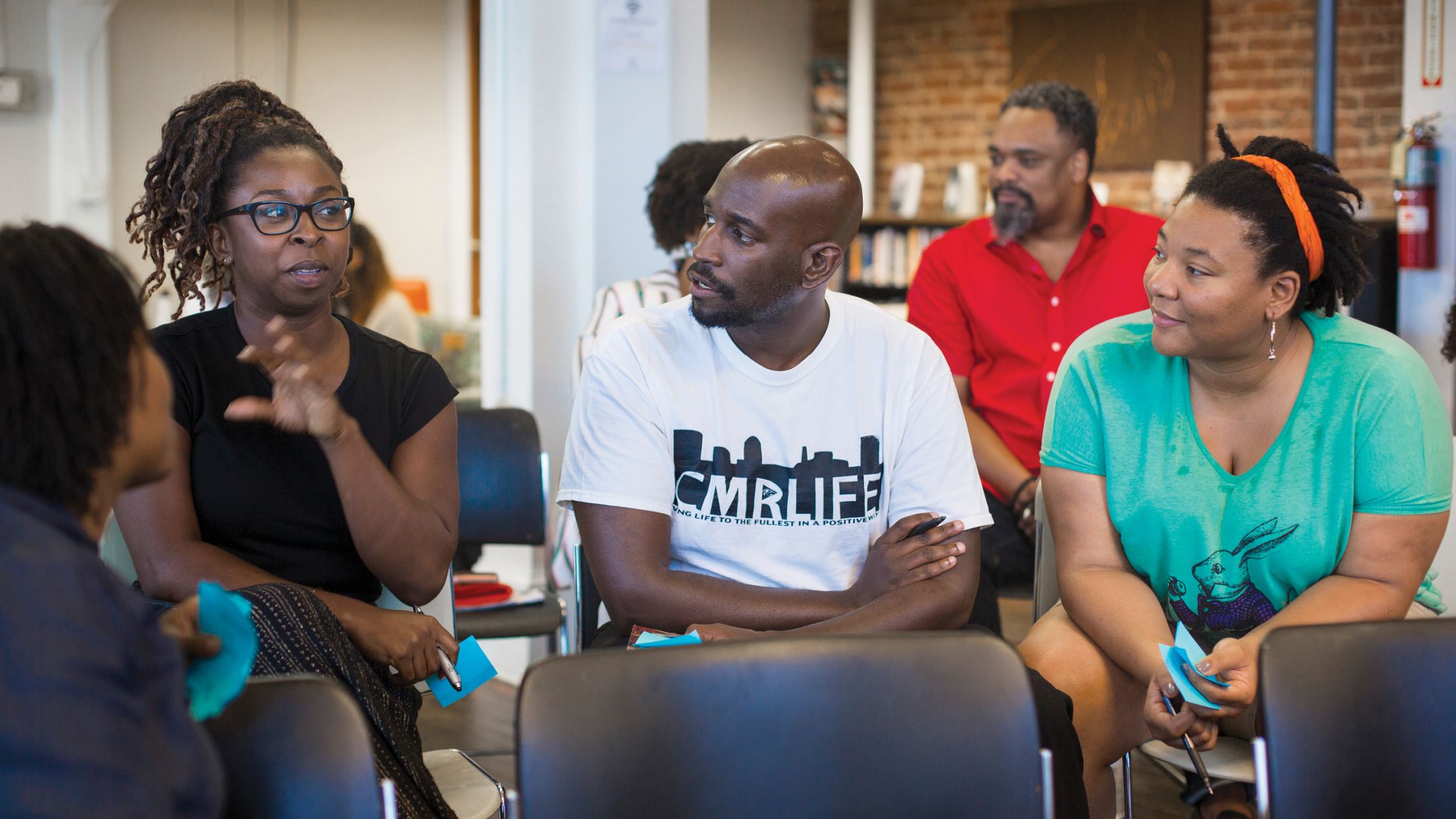A quick recap
Last month, we discussed our attendance at the Sickle Cell and Thalassemia All-Party Parliamentary Group and described how we performed our literature search which involved screening over 800 articles. We also described the data preparation/cleaning steps that we performed for our hospital data analysis study.
What have we been up to this month?
We have been extracting data from the literature search and exploring specific indicators of inequalities (e.g. number of clinical trials, publications or research funding). For the hospital data analysis study, we have began to explore trends in our data. We are keen to share the following early findings with you, highlighting that these are preliminary as we are conducting more in depth analyses.
1. Literature review
From the studies we included in our literature review, we identified key themes of inequalities including access to care (e.g. delay in receiving timely pain relief), lack of knowledge of sickle cell disease from health care professionals, poor health outcomes (e.g. hospitalisations) and stigma and racism.
2: Specific indicators of inequalities
One of these is research funding where we investigated the money awarded by top UK funders to sickle cell disease research and compared this with funding allocated to cystic fibrosis and haemophilia. The UK funders that we included were: the National Institute for Health and Care Research (NIHR), UK Research and Innovation (UKRI), which includes the Medical Research Council (MRC), and the Wellcome Trust (Wellcome). We used publicly available data to obtain the information below.
Total amount of money awarded by funder (GBP) between 2010 and 2024
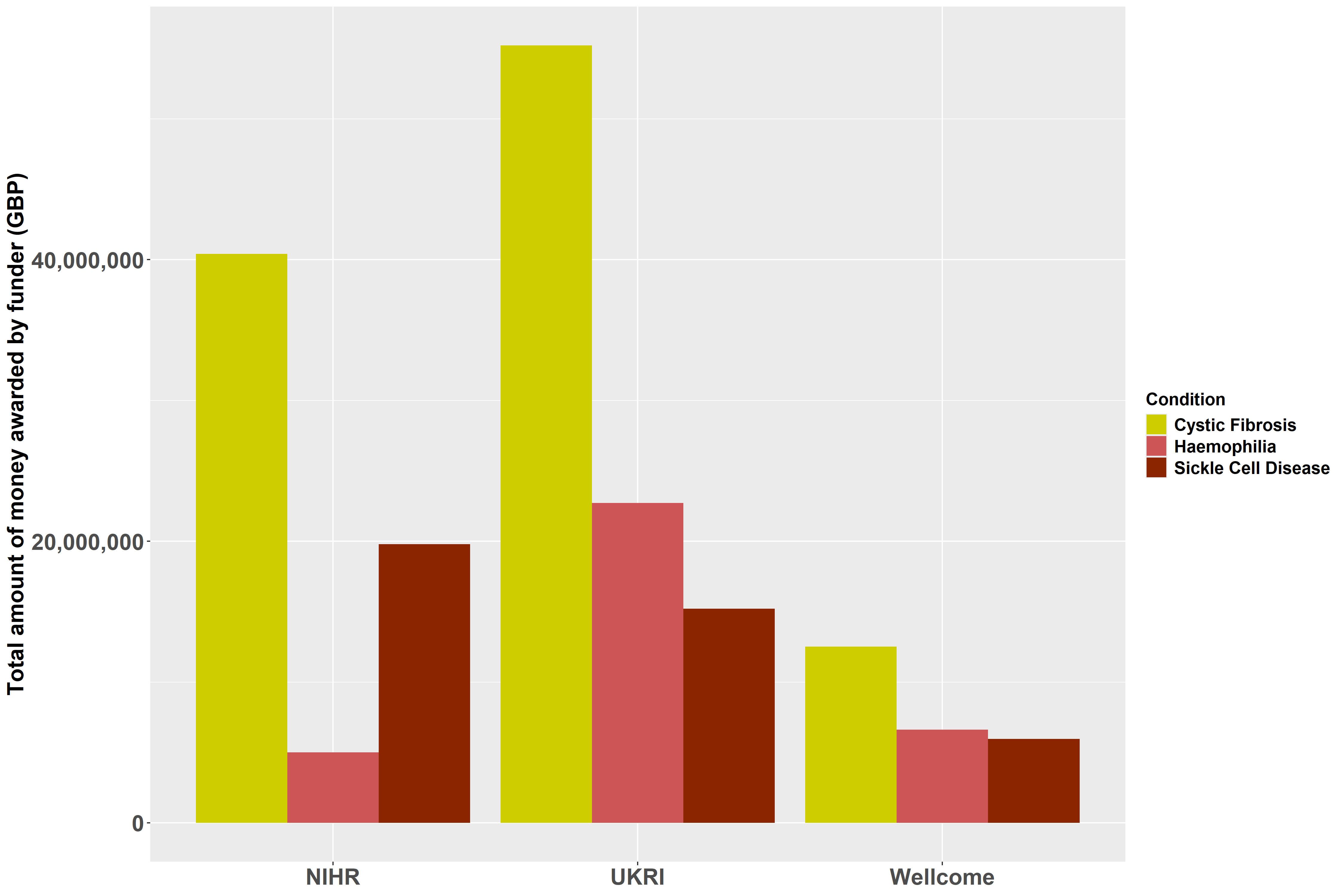
- Cystic fibrosis was awarded the most amount of money by all 3 research funders between 2010 and 2024.
- Cystic fibrosis was awarded around £67 and £74 million more than sickle cell disease and haemophilia, respectively.
- Both cystic fibrosis and haemophilia were awarded more research funding by UKRI and Wellcome though haemophilia received the least amount of total funding due to NIHR funding allocated to haemophilia.
3: Hospital data analysis
We have extracted routine hospital admission data from the Hospital Episode Statistics (HES) for the three conditions considered during the period 2013-2022. Through this, 32,253, 15,351 and 18,910 individuals were identified with sickle cell disease, cystic fibrosis and haemophilia, respectively. These numbers are higher than we would expect for all three conditions, so we are trying to identify why. The Cystic Fibrosis Registry is considered to capture 99% of individuals with cystic fibrosis across the UK, but as previously demonstrated in this article, there is a lot more uncertainty around the number of patients with sickle cell disease.
The importance of high quality data on the number of patients and their condition is nicely described in this statement from the Chief Executive of the Haemophilia Society, included in this report:
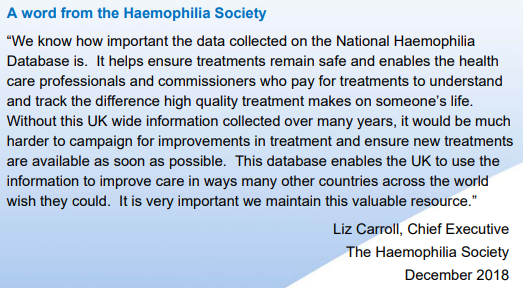
4. Conference
Last weekend, Fred participated to the Annual Scientific Meeting of the British Society of Haematology (BSH) and gave a talk on sickle cell disease as a global health issue to an audience of several hundred participants. It was also an amazing opportunity to hear the brilliant B-Positive choir live! They were incredible.
Picture credit: Vincenzo Giacco (@Vin_Giacco)
Want to contact us?
If you have any questions about this work, feel free to email r.muzambi@imperial.ac.uk, f.piel@imperial.ac.uk or to post a comment.


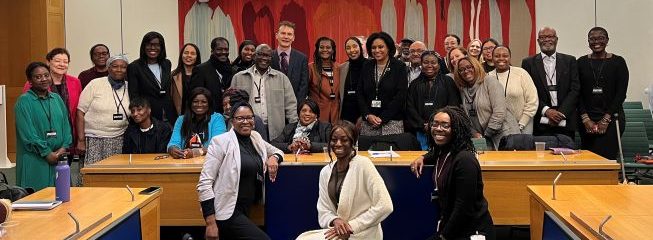
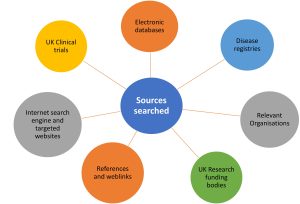 nd the
nd the 
